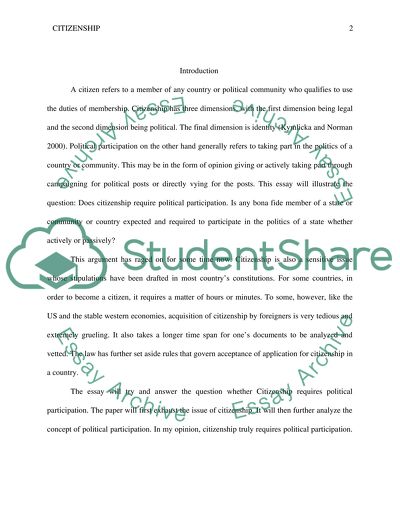Cite this document
(“Does citizenship require political participation Discuss Essay”, n.d.)
Retrieved from https://studentshare.org/environmental-studies/1416856-does-citizenship-require-political-participation
Retrieved from https://studentshare.org/environmental-studies/1416856-does-citizenship-require-political-participation
(Does Citizenship Require Political Participation Discuss Essay)
https://studentshare.org/environmental-studies/1416856-does-citizenship-require-political-participation.
https://studentshare.org/environmental-studies/1416856-does-citizenship-require-political-participation.
“Does Citizenship Require Political Participation Discuss Essay”, n.d. https://studentshare.org/environmental-studies/1416856-does-citizenship-require-political-participation.


